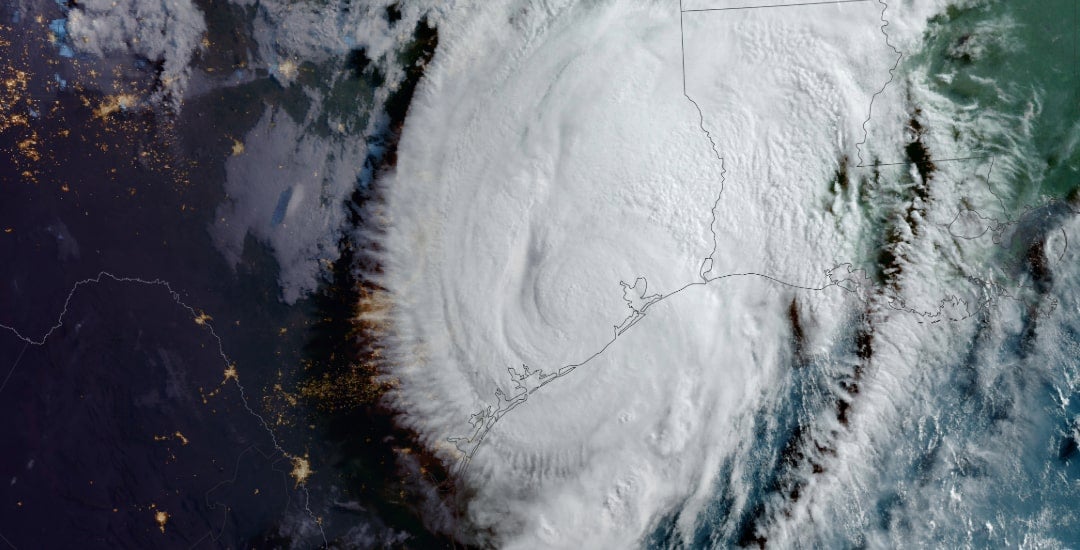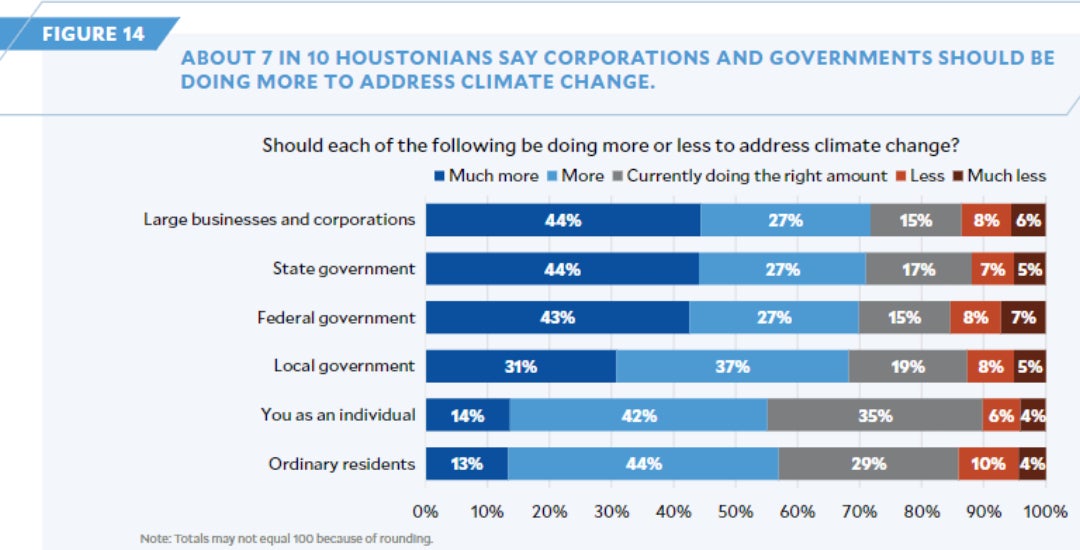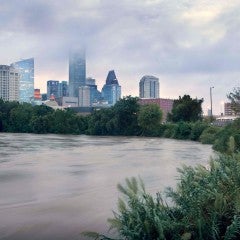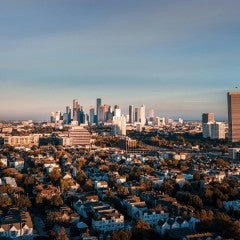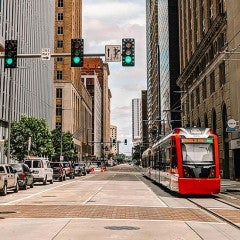Eighty-four percent of survey respondents believe it is at least somewhat likely that climate change will negatively impact their health and well-being in the next decade, and 86% said they thought their quality of life would decline. Eighty-one percent believe it is somewhat likely that climate change will be financially costly to them personally, and 86% expressed concern about Houston’s economic prosperity.
This post is part of a series highlighting the findings from the 2024 Kinder Houston Area Survey.
The arrival of Hurricane Beryl on July 8 placed the Houston area into a state of recovery once again. Less than two months earlier, on May 16, a derecho hit the region, killing eight people and causing more than $1.2 billion in damage in Texas and neighboring states, according to the National Oceanic and Atmospheric Administration. Straight line winds in a derecho are intensified by climate change, according to a 2023 article in the Nature Climate Change scientific journal.
Beryl made landfall on the Yucatán Peninsula on July 5 as a Category 2 hurricane. It became unorganized and briefly lost its hurricane status. As it turned toward Texas, Beryl reintensified in the Gulf of Mexico, which has been experiencing record high temperatures. The storm made landfall near Matagorda, Texas, as a Category 1 hurricane on July 8.
While it was still in the Caribbean, Beryl made history as the earliest storm on record to gain Category 4 and Category 5 designations. Andra Garner, an assistant professor in environmental science at Rowan University, told NPR much of Beryl’s strength can be attributed to human-caused climate change.
“In terms of the science, it’s unfortunately kind of right in line with what we expect when we’re warming the planet and we’re warming our oceans, especially,” Garner said.
Repeated disasters have coincided with a growing recognition of the seriousness of climate change. From 2014 to 2023, the proportion of Harris County residents that consider climate change a serious problem increased from around 40% to 60%, according to the 2023 Kinder Houston Area Survey. During that time, the city experienced several major flooding events and a crippling freeze.
Beryl resulted in at least 18 fatalities in Houston, but a more accurate count is not expected to come for several weeks. The hurricane left nearly 2 million businesses and homes without power, and about 215,000 CenterPoint Energy customers were still without power a week after the storm made landfall. To the north, Entergy reported more than 11,000 customers were still without power as of Monday afternoon.
Lisa Lin, the first-ever director of sustainability for Harris County, underscored the difficulty of residents having to prepare for a variety of climate impacts year-round.
“It’s just one of those challenges where how do you as a Harris County resident be prepared for all of these things? Whether it’s hotter weather, extreme cold, more extreme rain events, more intense flooding and more intense droughts,” Lin said. “I think that in itself is the biggest threat.”
Many Houstonians did not feel prepared heading into the 2024 hurricane season. Last fall, about 4 in 10 city of Houston residents told the Kinder Institute that the community was not prepared to recover from extreme weather events. About the same proportion of respondents also said their home was not safe from extreme weather events and that the mayor’s office had not done enough to safeguard the city from future storms.
When Beryl arrived, the city was mostly spared major flooding, but the storm’s 80-mph winds caused destruction to the region’s tree canopy and electric grid. Beryl has been compared to Hurricane Ike in 2008, which was a Category 2 storm with winds of 110 mph upon landfall.
In an interview with the Urban Edge last year, former Harris County Judge Ed Emmett expressed concern about the potential for damaging winds such as during Ike.
“The area is more prepared for an Ike-like event, but I don’t think the people are, because they haven’t had one,” Emmett said. “Since then we’ve had flood events, but we haven’t had hurricanes. There’s just such a huge contrast between the two.”
Attention has been focused on the region’s electric grid, which was already recovering from the damage sustained in May’s straight-line wind storm.
Before both Beryl and the derecho, city of Houston residents were already wary, with 94% expressing at least some worry about the electric grid.
“What strikes me is how clearly our residents see what the problem is, whether it is the energy grid or the need to better protect our homes and neighborhoods from extreme events,” said Dan Potter, director of the Kinder Institute’s Houston Population Research Center. “Elected officials and leaders really need to pay attention to what residents are saying.”
Future surveys will collect information about the effects of Hurricane Beryl as well as the severe weather in May.
“The Greater Houston Community Panel makes it possible to better understand the scale of the human impact of these events, who was affected and how, and what the community needs to move forward,” Potter said.
Dealing with the immediate aftermath of these events — or preparing for them — are daunting challenges on their own; addressing the root causes of climate change is a whole other matter. However, the consensus among Houstonians is that everyone needs to be doing more.
About 70% of residents believe the bulk of the responsibility of addressing climate belongs to local officials, state officials and federal agencies alongside large businesses and corporations. A majority also says that everyday citizens have a role to play.
“Solving climate change is a task beyond one city or county or country, and Houstonians understand it’s an all-hands-on-deck type of challenge,” Potter said. “They are willing to do their part. They also want these larger entities — government and business — to do a lot more.
“What Houstonians also recognize is that climate change is not a tomorrow problem; it’s happening in front of us today, and our standing as a great city is at stake.”

